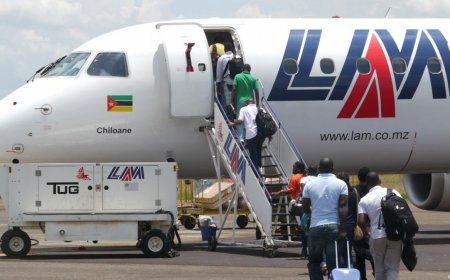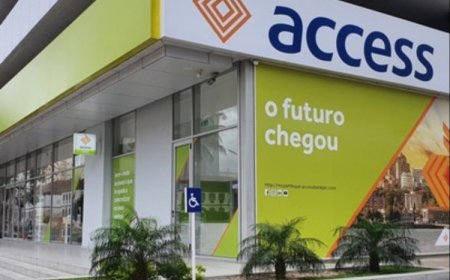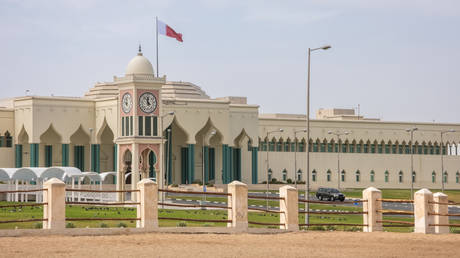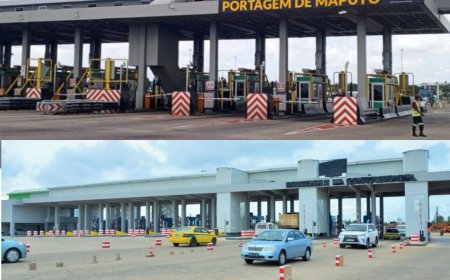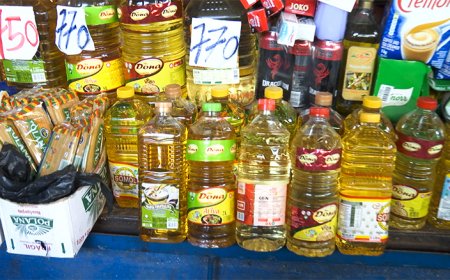Razaque Manhique: A Mayor governing Maputo amid million-dollar parties, trash, and populism
Razaque Manhique, the Mayor of Maputo, after assuming the presidency of the municipality, implemented populist measures that do not address the real needs of the city. Many neighborhoods remain flooded by rainwaters, while avenues are overwhelmed by overflowing trash containers. Instead of tackling these critical issues, Manhique has spent scarce funds on lavish parties, forgiven fines for churches, and temporarily suspended parking fines, further worsening the municipality’s already precarious financial situation.
Elected in the most fraudulent municipal elections in history, Razaque Manhique has made headlines with his bold and unusual governance measures.
At a time when the municipality is "financially in shambles," and the norm would be to expand the tax base to cover expenses, he paradoxically continues to reduce the few existing sources of revenue.
Strangely, despite the residents of Maputo living amid floodwaters, the mayor decided to mobilize around 10 million meticais to host a party celebrating Mozambique's 49th independence anniversary. This amount is nearly twice what was spent on purchasing water pumps to alleviate the suffering of flood victims.
The municipality justified this expenditure by stating that "the balance of a city also involves creating spaces for families to enjoy leisure, socialization, and cultural exchange."
Meanwhile, Maputo, especially its outskirts, is plagued with trash that endangers public health and tarnishes the image of the "Pearl of the Indian Ocean."
The municipality has publicly admitted its inability to keep Maputo clean, citing a monthly deficit of 30 million meticais for solid waste collection in the capital. The municipality can only collect 14 million meticais monthly, against the required 44 million for this activity.
"Currently, we have a monthly bill for primary collection of about 10.37 million meticais, and another for secondary collection, which is the main one where we see direct effects, of about 33.56 million meticais, totaling around 44 million meticais monthly," explained João Munguambe, Councillor for Infrastructure and Sanitation, last week.
This is not the only challenge the municipality faces. The administration has yet to solve the urban flooding problems threatening to erase some historic neighborhoods of Maputo, such as Magoanine, Malhazine, Hulene, and Zimpeto.
Critical areas call for significant intervention, such as the installation of drainage ditches, water retention basins, and sanitation, but the municipality lacks the funds.
Despite this, Razaque Manhique temporarily suspended fines for motorists in Maputo, arguing that the police were excessively penalizing drivers.
"We are over-policing vehicles on public roads," stated the mayor, confirming his tendency to flatten the municipality's revenue sources with populist measures.
This measure was taken in a context where the municipality is highly indebted, and the 14 million it can collect monthly comes from the garbage tax collected by EDM. The remaining 30 million, according to the administration, must come from other sources as debt continues to grow.
"We paid about 60 million to Ecolife this year, and the same amount to Enviroserv. This shows we are making payments, but this is naturally insufficient to cover past debts," concluded the councillor, emphasizing that the administration continues to mobilize additional resources to cover debts with Ecolife, Enviroserv, and Clean Africa.
But the saga of Razaque Manhique didn't stop there. Recently, the mayor suspended all fines imposed on churches for noise pollution. Manhique justified the decision by stating that the focus should be on raising awareness to address the problem. Once again, this is a populist measure that directly impacts the municipality’s revenue sources.
In the same vein, the mayor suspended fines for improperly parked vehicles for fifteen days, also to allow for awareness-raising.
His governance evaluation of the first 100 days was marked by the unusual measure of authorizing informal vendors to remain on the streets of the capital, arguing that there is still no space to accommodate them.
The informal business, in addition to not ensuring revenue for the municipality, transforms Maputo into a genuine "dumba-nengue," compromising the urban decorum expected of a capital that should be a model for the other 65 municipalities in the country in terms of organization.
To assess the economic impact of these measures, TORRE.News spoke with economist Egas Daniel, affiliated with the International Growth Centre of the London School of Economics. The source prefers to believe that behind these measures, there is a larger strategy by the municipality to make up for the revenue deficit incurred by giving up certain incomes because otherwise, there is no technical support for the effect.
The source believes there is an apparent contradiction between the municipality’s financial needs and the measures to give up revenue.
"I can only accept if the revenues the municipality is giving up are not significant. Or else the municipality has other more robust sources. Or the municipality is easing here to tighten elsewhere to compensate for the loss," said the source.
Egas Daniel suggests that the mayor might be on a campaign to project a good image to the residents, ignoring some basic principles of municipal management.
According to TORRE.News investigations, Razaque Manhique is currently the president of the National Association of Mozambican Municipalities (ANAMM), a deliberative body. This raises the risk that the populist measures might represent a model of municipal governance to be followed, a scenario that would be grave for the municipalities' lives at a time when the government has publicly warned mayors to seek solutions to finance their activities.
Almost all the 65 municipalities in the country, in addition to weak revenues, depend heavily on the municipal compensation fund and other amounts channeled by the Mozambican state.
However, it is known that the issue of popularity is a significant weakness for the mayor of Maputo, considering how he came to power. Thus, any political action in search of his legitimacy was expected, except for the risky endeavor of cutting off revenue sources


